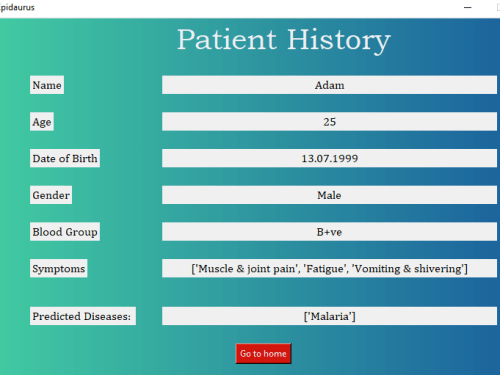Medical
Atherosclerosis is a long-term inflammatory condition that builds up inflammatory cells and fat in artery walls, which can cause serious cardiovascular problems. Because current therapies focus exclusively on certain components of the condition, such as inflammation or cholesterol, they frequently fall short of addressing the disease's complex nature. Our novel approach addresses cholesterol build up, oxidative stress,
The human centrifuge device has special cabin 1 for passengers so that the weight of the passengers is transmitted by a series of interconnected double cone wheel units sliding on v_shaped inclined tracts and tends to be supported by a rigid tube at right angles to the direction of force transmission and as the machine sustains high speed rotary
I hereby submit a design idea of clinical grade prototype which is both ‘diagnostic’ and provides emergency ‘treatment’ by automatically diagnosing and switching to appropriate mode.
The Lipofilltech bioabsorbable implant, created for breast lipofilling surgeries (autologous fat transfer), combines advanced 3D printing technology with bioabsorbable fibers. This temporary support optimizes the integration of transferred tissue. ()
Both the implant and its integration method hold a US patent. Developed and patented by an experienced plastic and reconstructive surgeon,
Background: Staircases are seen in almost every man-made structure. Many old buildings do not have elevators fitted thereto. The task of climbing stairs is a major challenge for differently able people or for elderly people, due to the impaired mobility.
In the buildings, which are equipped with elevators,
The Neuraminidase Cleavage Scanner (NCS) is a device that use a technique of a matrix of thousands of Micro Ultraviolet Spectrometers to perform a counting of occurrences of specific shifts or changes, or sequence of changes in the abortion spectrum of each spectrometer pointing to a reactive sample, in order to determine the probability Neuroaminidase is being split,
Triple-negative breast cancer (TNBC) is a highly aggressive subtype of breast cancer that poses significant challenges in treatment. The primary problem with TNBC is the lack of effective treatments to stop cancer metastasis, the spread of malignant cancer cells from the primary tumor to distant organs.
The development of alveolar organoids for drug screening represents a significant advancement in respiratory research, offering a more physiologically relevant model for studying lung diseases and testing therapeutic interventions. This study explores the creation of alveolar organoids using a comprehensive suite of growth factors to replicate the intricate microenvironment of the human alveoli.
Page 1 of 8










